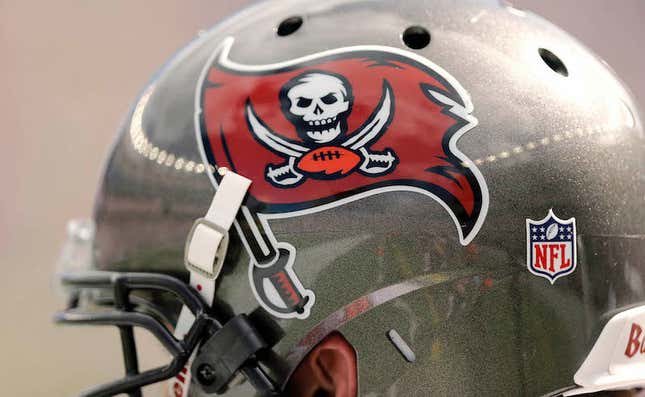
This is old, but so what. The more we can talk about how the Tampa Bay Buccaneers cooked their books in a failed attempt to claim settlement money from a far-off oil spill that didn’t actually affect them, the better. Turns out there’s one more twist to pass along: The Bucs sought to keep from public view their efforts to dip into the Deepwater Horizon settlement fund.
The Bucs had claimed $19.5 million in lost revenue as a result of the April 2010 BP oil spill, which took place off the coast of Louisiana, more than 300 miles away. After an initial denial from the claims administrator, an appeals panel governed by the settlement agreement granted them an award, which was overturned in federal district court after an appeal by BP. The Bucs then brought their case to the Fifth Circuit Court of Appeals, which on Friday—just in time for the Memorial Day weekend news dump—upheld the denial.
But in a March 29 ruling, the Fifth Circuit also shot down the Bucs’ request “to bar public access to the recording of the argument that this court routinely makes available on its website.”
The Bucs had already succeeded in keeping their case file—which included proprietary information about the NFL’s revenue-sharing process—under seal. But when they asked to have the courtroom sealed for an April 1 hearing related to their settlement claim, the appeals court said, “Nope.”
The Bucs cited three reasons for seeking secrecy:
- The likelihood that confidential financial data would be discussed;
- A contention that an open hearing would “gratify [BP’s] private spite,” “promote public scandal,” and “harm [the team’s] competitive standing”;
- The Bucs had been granted secrecy throughout the claims process.
The appeals court knocked these arguments down by pointing out that other claimants have made arguments in open court without disclosing proprietary information, and that the Bucs were already aware that the appeals court was not bound by any previous confidentiality agreements. But it was the court’s response to argument No. 2 that really put the ridiculousness of what the Bucs were doing in perspective (emphasis mine):
[The Bucs’ brief] recites an aside from BP’s brief stating that the public would be “surprised to learn that a professional football team has claimed spill-related losses.” Maybe so. But public “surprise” at a football team’s seeking money from an oil-spill settlement is not in the same universe as the types of scandal or spite that warrant closing the courthouse door. ... Cases are heard in courtrooms every day addressing matters so much more sensitive than this dispute—workplace harassment, sex crimes, or child abuse to name just a few. Even in those cases the courtroom typically remains open to the public.
The circuit court judges were just getting warmed up, though (emphasis again mine):
At the end of the day, because this court has maintained confidential treatment of its financial statements, the Buccaneers’ request for sealing the oral argument is based on nothing more than a desire to keep secret that it filed a Deepwater Horizon claim. The court will leave it to others to guess why the team is so concerned about public disclosure of its claim when numerous other BP claimants in the appeals inundating our court are not.
One of those claims, in fact, belonged to another Tampa pro sports franchise: the NHL’s Lightning, who were awarded $788,123 from the settlement fund. The Lightning later appealed this to the Fifth Circuit, on the grounds that they were entitled to even more settlement money, but the award was upheld. Interestingly, the Lightning later succeeded in getting the court to redact their names and any financial figures from the decision that’s available on the Fifth Circuit’s website, but an unredacted version can be found here.
Under the terms of the settlement agreement, businesses along the Gulf Coast as far away as Florida—including sports franchises—were well within their rights to lay claim to a share of BP’s $20 billion settlement fund as compensation for revenue lost on account of the oil spill. The Bucs’ claim was ultimately denied because appeals court said they used accounting gimmicks to retcon their revenues to meet the settlement’s qualifying criteria. As of January 2017, according to the Financial Times, more than 300 people had been convicted and more than 100 were jailed for attempting to defraud the BP settlement.
One final note: When the appeals court judges denied the Bucs’ claim on Friday, they dunked on them and hung on the rim a little (emphasis mine):
The spill’s impact on the Buccaneers may not be readily apparent. Disastrous though the April 2010 explosion was for significant areas of the Gulf and surrounding coast, it did not hurt the Buccaneers’ performance that fall. The team went 10-6 after going just 3-13 the year before. The Bucs have not had a 10-win season since.
You can read the Fifth Circuit’s denial of the Bucs’ request for a secret hearing here:
And the Fifth Circuit’s denial of the Bucs’ settlement claim is here: